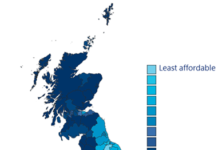Real estate is at the heart of economic development. Without raw land, residential and commercial properties can’t be developed, which means shelter, a basic need, wouldn’t be met, and commercial undertakings would have the buildings to run their businesses. If you are browsing the listings and looking to purchase a house in 2022, among the aspect that could be dragging the process is the skyrocketing prices. House prices in Kenya are rising fast; check the types of houses available for sale in Nairobi, for instance, and compare the going prices. You’ll notice a huge price gap, but what’s propelling the rise? Here’s a glance at some factors contributing to the surge in house prices.
Growing demand
Kenyans, especially following the Covid-19 global pandemic, are moving from rentals to home ownership. More people continue to realize the long-term financial impact of renting versus buying. While buying means significant upfront financial commitment, it offers more predictability, security, and freedom. The top reason more satellite towns continue to pop up and quickly grow as Kenyans look for affordable housing close to the cities where they work or do business.
The developed properties in the current market can hardly match the growing demand. Developers have an edge since more consumers want the scarce properties; this translates to skyrocketing house prices following the natural law of demand and supply. Even as developers move fast to construct new units, the trend won’t slow down in the next couple of years.
The costs
Kenya’s infrastructure is quickly growing, from roads, railways, and airports, to communication, to mention a few areas. This is great, but the cost of such developments gets pushed to other parties, including property developers. Today, you can effortlessly find construction materials and transport them to the construction site. However, they cost a lot more. This is not to mention the higher labour costs since the workforce is expensive considering the economy.
A developing state incurs hefty costs, and with the rising taxes and cost of living, property developers aren’t the only affected parties. As a result, they incur higher costs, which are transferred to the consumers through the final selling price. This translates to rising house prices, an aspect that’ll hardly slow down considering the development momentum and economic consideration in Kenya.
Interest rates
A significant shift in Kenya’s real estate industry is attributed to the lower interest rates. Financial services and government incentives designed to help more consumers afford homes are excellent. However, an easily overlooked aspect is how the lower interest rates mean to the supply and demand curve. The interest rates give consumers the buying power. The few units available result in stiff competition, propelling the house prices. It is excellent now that you can easily find outstanding mortgages from banks and other financial institutions, including SACCOs. Still, its impact on the market doesn’t favour the buyers much.
The populace
Population growth doesn’t get as much attention as it deserves; the skyrocketing land prices are the most prominent population growth aspect that continues to propel house prices. Raw land is a scarce resource. It can’t be manufactured to keep up with the rising population. So, as more consumers move to own the scarce resource, its prices keep growing. Today, virtually everyone wants a piece of “buroti maguta maguta”, loosely translating to prime land. These are plots in fast-developing satellite towns, a trend that is affecting more than areas close to the cities. Even when not intending to develop it immediately, owning land is a security investment. With such a trend, raw land prices continue to rise, impacting the development expenses of houses. This automatically translates to a higher price tag, which won’t slow down anytime soon.
Government policies
Zoning regulations are among the government policies shaping house prices in Kenya. The growth of satellite towns isn’t solely pushed by people looking for alternative and affordable regions closer to the cities. These areas are marketed as prime, given the expected development considering they are seen as metropolitan areas. While this has some truth, the developers use the projections to set house prices, which are naturally higher and keep rising as more consumers compete to secure homes in such areas. It is good that the zoning regulations are clear, such as what the land can or can’t be used for, but their impact on property prices can’t be overlooked. Today, buying a house or raw land in Nairobi metropolitan areas requires significant financial power, which will only keep rising, even in other cities.
Buying a house is fulfilling, and in the current times, this means parting away a massive chunk of your money. House prices will hardly plummet in the coming years since more people want more than the prestige of being a homeowner; they crave the freedom, security, and financial power it offers.
Help keep news FREE for our readers
Supporting your local community newspaper/online news outlet is crucial now more than ever. If you believe in independent journalism, then consider making a valuable contribution by making a one-time or monthly donation. We operate in rural areas where providing unbiased news can be challenging. Read More About Supporting The West Wales Chronicle






















